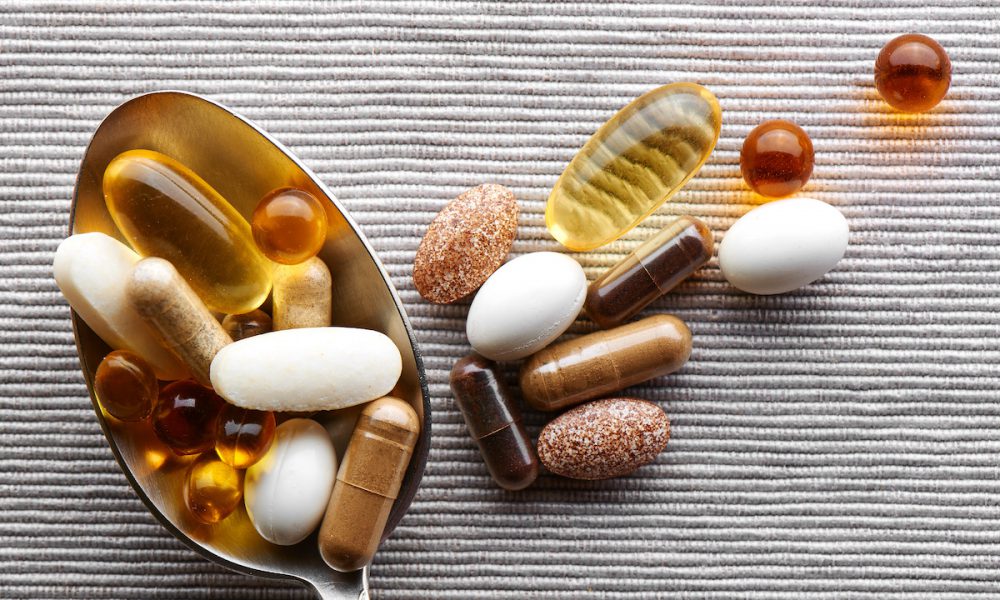
What are the best supplements for mental health? When it comes to feeling your best and even giving your mood a boost, some supplements can bring positive effects to the body and mind. When you are looking into the best supplements for mental health, these are a few recommendations that can keep you feeling focused, energized, and reduce stress levels over time.
While it’s always best to consult your family physician if you are feeling mentally ill, these supplements can also help alleviate depression and anxiety.
Determining the Need for Mental Health Support
Mental health is more important than ever. This is especially true during a pandemic, where many areas of life feel very uncertain.
Two of the most common mental health disorders are anxiety and depression. These can both severely affect your quality of life. If you are experiencing any of the following symptoms, it is important to contact a mental health care professional to evaluate you further.
Symptoms of Depression:
What are the symptoms of depression? People who have depression will often experience the following:
- Feeling generally sad most if not all the time
- Losing interest in activities that you used to enjoy or find fun
- Feeling frustrated, restless, or irritable
- Having problems with sleep, including insomnia or sleeping too much
- Changes in appetite, including eating more or less than you normally do
- Having unexplainable aches and pains of does not improve with treatment
- Trouble with concentrating, making decisions, and remembering details and overall feeling of guilt and helplessness
- Thinking about hurting yourself or suicide. If this is the case, please call the National Suicide Hotline number at 800-273-8255
Symptoms of Anxiety:
If you are suffering from anxiety, you aren’t alone. In fact, over 40 million adults in the United States have a diagnosed anxiety disorder. These are several of the symptoms that you will experience when you have an anxiety disorder:
- Persistent worrying about events that feel out of proportion
- An impending sense of doom or that something bad is going to happen
- Overthinking plans in case of worst-case outcomes to an array of situations
- Feeling threatened in situations that aren’t threatening
- You have a hard time handling on certain situations
- You are indecisive and have a hard time making decisions
- You continuously worried without the ability to let go
- You find it hard to relax and regularly feel restless or on edge
Anxiety also comes with a variety of physical signs and symptoms. You may have muscle tension, trembling, sweating, nausea, irritability, and fatigue.
Whether you have depression or anxiety, these are some of the best supplements for mental health.
Omega-3 Fatty Acids
What are omega-3 fatty acids? They are found in soybeans, fish, and other seafood. ALA is a component of omega-3 fatty acids that your body can’t make on its own. However, it’s important to implement this supplement into your diet.
This is because omega-3 fatty acids are good for several reasons. They surround the membranes in every cell in your body. It also helps add protection to your immune system, lowers inflammation, and it can even help protect against Alzheimer’s disease and dementia.
But how can omega-3 fatty acids help with mental health?
This supplement is believed to help with depression. One reason why the supplement can help is that it easily moves within mood-related molecules of the brain. There have been about 30 clinical trials that detail the use of omega-3 fatty acids to help alleviate depression. One gram of omega-3 fatty acids per day can help aid in depression symptoms. This is the equivalent of eating about three pieces of salmon each week.
While omega-3 fatty acids can stand as a natural treatment for mood disorders, there is still a lot of research to be done in this area.
Vitamin D
Did you know that vitamin D is essential for both physical and mental health? The body needs vitamin D to function since major organs including the heart and brain depend on it.
But speaking of the brain, how does Vitamin D affect mental health?
First, those that are vitamin D deficient can experience mood changes and mood swings. But just like omega-3 fatty acids, there are limited studies showing that vitamin D can improve mental health. However, studies that exist show that there may be a link between vitamin D intake and depression.
The interesting link is that people with depression tend to have lower levels of vitamin D. However, It is not yet proven that the deficiency itself causes depression.
What is the best way to improve your vitamin D levels? You can certainly take supplements, but you can also get it from your food such as drinking whole milk. You can also get vitamin D by spending time outside in the sun, which is also proven to elevate mood levels.
Magnesium
Did you know that up to 75% of people have a magnesium deficiency? This is certainly a problem, as magnesium is critically important to many chemical aspects of the body. Signs of magnesium deficiency range from muscle twitches and cramps, fatigue, muscle weakness, and mood disorders.
Why does magnesium make a difference when it comes to mental health? This is because magnesium plays two important roles in the brain. First, it helps to regulate your stress hormones. Meanwhile, I can also help you achieve a more peaceful and restful state.
You’ll want to be careful about taking too much magnesium. Believe it or not, there is such a thing as a magnesium overdose. Too much magnesium can result in low blood pressure, respiratory distress, nausea, and vomiting.
The recommended daily magnesium intake is 402 to 420 mg per day for men. For women, the intake is 310 to 320 mg.

Zinc
Zinc is a mineral that has the potential to improve the treatment response of antidepressants and increase the feeling of well-being with clinical depression symptoms.
It’s no surprise that Zinc has a positive effect on mental illness, specifically in the realm of depression. This is because mineral supplements help support several key functions of mood disorders, including neurotransmitter synthesis.
As one of the micronutrients, studies show that people deficient in micronutrients such as zinc can show violent behaviors, increased aggression, and psychiatric distress. Furthermore, recent research indicates that mental health complications may arise because of micronutrients deficiencies. It can also impair cognitive function and neuromotor performance.
A diet scarce in zinc is also known to result in behavioral disturbances.
Studies show that treatment with zinc combined with an SSRI can induce a significant increase with zinc levels inside the brain. There is a hypothesis that zinc is dependent on serotonin transmission in the brain. Serotonin is a chemical in the brain that is believed to stabilize mood.
While zinc’s role in helping to treat depression still remains unclear, Small-scale studies point to positive effects with patients using zinc and a combination of an antidepressant.
St. John’s Wort
St John’s Wort is a plant that you will find in the wild. It has been used for centuries, specifically for mental health conditions. In fact, it’s one option that is prescribed for depression in Europe.
Meanwhile, here in America, it is sold as a dietary supplement.
There are several studies that determine the effectiveness of St. John’s Wort for depression. However, keep in mind that the results are mixed. Studies indicate that St. John’s Wort can be effective for depression, but not consistently.
You also must be careful when it comes to taking St. John’s Wort in combination with antidepressants. This is because it can release a life-threatening amount of serotonin in the body. It can also weaken the effects of other prescribed medications, such as birth control.
A positive note is that St. John’s Wort can have fewer side effects than prescription antidepressants.